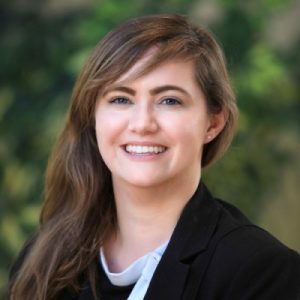

Editor Major Gifts Today
After receiving three meaningful planned gifts over the last few years, Legal Services of Greater Miami, Inc. is preparing to launch their first Legacy Society. The early stages of this South Florida nonprofit’s Legacy Society provide an interesting peek into the wide diversity of paths donors travel when considering planned giving, as well as basic guidelines to help any nonprofit begin this essential fundraising revenue stream.
“We see (the Legacy Society) as a way to recognize those who have already made this commitment (before death) and those whose gifts have been realized (after death),” explained Monica Vigues-Pitan, CEO of Legal Services of Greater Miami, Inc.
Legal Services of Greater Miami is part of an extensive network of nonprofit Legal Services law firms across the United States. These firms help low-income residents access equitable legal resources across matters like tenants’ rights and healthcare. Planned giving represents long term stability for this nonprofit’s work tackling society’s most complex issues.
“We are in a position where we are growing because there is a growing demand for our services. Planned giving is an opportunity to sustain ourselves into the future,” said Vigues-Pitan.
These gifts all come from powerful, trailblazing female philanthropists from South Florida: Marcia K. Cypen, Edie Laquer, and Jacqueline Allee Smith.
Vigues-Pitan personally received notification of the unexpected seven-figure bequest from Jacqueline Smith, alone in a COVID-era office in fall 2020. The call almost made Vigues-Pitan “fall out of my chair.” Smith’s gift marks the first planned gift transferred to Legal Services of Greater Miami.
“I was really moved to be honest,” Vigues-Pitan said. “Being left such a large amount of money from someone’s estate, their legacy, how they want to make an impact after they leave this Earth … it’s an incredible vote of confidence in our ability to manage this money and the importance of our mission.”
After a long and impressive career in bankruptcy law, Smith served as only one of six female law school deans across the United States in the 1990s. Smith was a partner at the firm Holland & Knight alongside her husband, Chesterfield Smith. The couple generously donated to Legal Services during their lifetime and Jacqueline Smith left $3 million to the nonprofit in her estate.
Marcia K. Cypen served as the Executive Director of Legal Services from 1983 until her retirement from that role in 2017. A trailblazing woman in leadership, Cypen demonstrated a passion for planned giving by establishing the Legal Services of Greater Miami Foundation during her tenure. Cypen decided to continue her commitment to this nonprofit with her founding gift to the Legacy Society, an example of a living advocate making a planned gift.
“The combination of the two kinds of gifts right now could be powerful, to have one pledged and one received,” said Vigues-Pitan. “This is what it looks like, even though you won’t be here, to have what you worked toward have an impact beyond your life.”
Another example of a pledged planned gift comes from Edie Laquer. Laquer comes from the real estate world and is not an attorney. After thoughtful conversations with Legal Services, Laquer made a permanent gift to establish the Edie Laquer Foundation Women and Children’s Rights Attorney Chair. This endowment ensures an attorney will be available to assist the most vulnerable with housing, healthcare, and other civil justice needs.
These first founding members provided the boost Legal Services needed to promote and explore planned giving. Vigues-Pitan explained Laquer and Cypen feel fortunate to be the first, but they insist “we had better be the first of many.”
Vigues-Pitan graduated from law school in 2003 and began work with Legal Services the same year. While a long-time attorney well-versed in facilitating complex and difficult conversations, she agrees talking about planned giving can be challenging. Not only can the legal jargon be complicated to convey to donors, the subject matter is undeniably emotional.
To help cross this initial hurdle, Vigues-Pitan and her team leaned on the Legacy Society’s three founding members to serve as advocates for the idea.
“Where to start is with your strongest supporters. The best way to do it is to have people who have already made the commitment, peers talking to peers,” Vigues-Pitan advised. “Find your champion, who is not a current employee of the organization, to model the way.”
Using a current Legacy Society donor not only brings the conversation to a relatable, peer level, but also talking to someone who has made this emotional decision helps to blur the Grim Reaper some fundraisers sense lurking in the background of planned giving conversations.
“(When you use an) influential initial donor, it’s not necessarily thinking about end of life,” Vigues-Pitan explained. Instead conversations revolve around the legacy someone wants to leave behind and “all the ways a donor can support their favorite charitable organization,” which are all much easier conversations, she said.
Vigues-Pitan advises nonprofits to keep their planned giving simple in the beginning stages. Legal Services invested in a few key pieces to kickstart plans for their Legacy Society, including designing a separate logo related to the nonprofit’s branding and including information in newsletters and on the website, to “plant the seed.”
“It’s about putting yourself out there,” Vigues-Pitan said. “If you don’t demonstrate there is an option they don’t realize they can do that. I don’t think it’s a heavy lift to have as an option for donors.”
Nonprofits must remember stewardship when starting a new Legacy Society. For Vigues-Pitan, following up with her Legacy Society members pays off in more ways than one.
“With any planned gift it’s important for the donor to know that the organization is on the right track and the mission is consistent with why they originally gave the gift,” she said.
Because planned gifts live within a will, keeping Legacy Society donors updated on your organization’s results will resonate when it comes time for them to update this document. “When they revisit their will, which a lot of people do every few years, there is always a chance the gift could grow and get larger based on their understanding of the mission,” Vigues-Pitan said. Adding a major gift or annual gift to their Legacy Society pledge is also always an option if they feel informed and inspired by diligent stewardship.
“Our mission is going to be relevant, unfortunately, for a very long time,” Vigues-Pitan said. The organization’s simplified, renewed focus on planned giving aims to support this legal nonprofit’s critical mission for generations to come.
Consider the recruitment opportunities for your organization that these stats indicate:
Random interesting stats presented monthly from various sources.